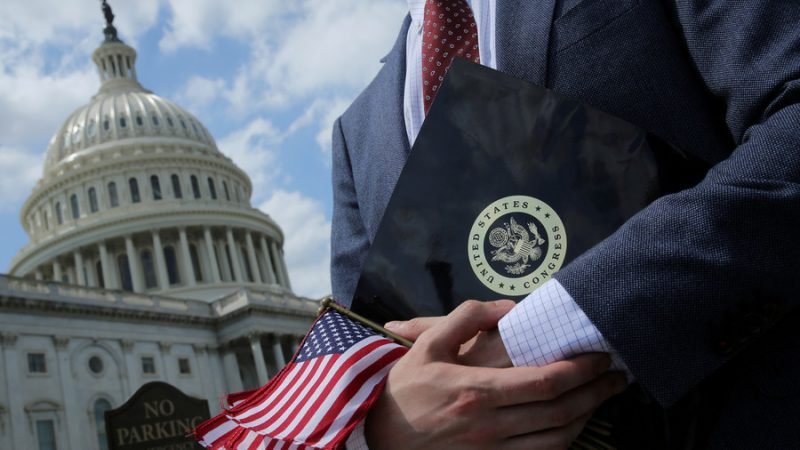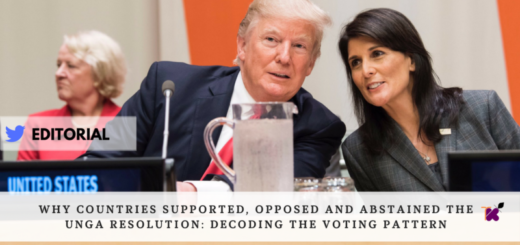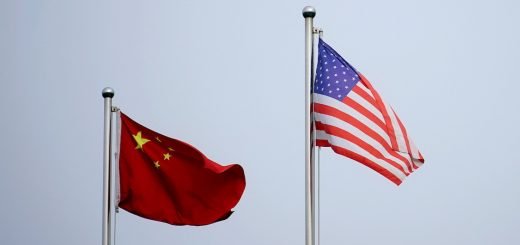Rethinking unilateral sanctions in a multipolar world

Following the cold war that occurred between the then superpowers, United States of America and the Union of Soviet Socialist Republics resulted in the development of a unipolar world. The unipolar world, spearheaded by America established the Bretton Woods Institutions after the United Nations Monetary and Financial Conference which took place in 1944. This conference resulted in the formation of the foundation for the global economy through institutions like the International Monetary Fund, the World Bank officially known as the International Bank for Reconstruction and Development and the World Trade Organisation previously known as the General Agreement on Trade and Tariff. With the defeat of USSR, the United States took over the bipolar world and established new world order, dominated by Washington through economic, political and cultural hegemony.
Sanctions are restrictive measures having economic consequences backed by political objectives. These alter the strategic decisions of state and non-state actors that threaten their interests or violate international norms of behaviour. In most cases, they coerce, deter, punish, or shame entities that endanger their interests or violate international norms of behaviour. Often, sanctions are viewed as an alternate path between diplomacy and war. Working like a global government, United Nations can impose sanctions which in most cases is done by the crisis management body, the Security Council which while responding to global threats cuts economic ties with the government of the state thus leaving them with barely any support.

More often than not, the United States also imposes economic and financial sanctions. But the main difference between both these sanctions is the support from other countries; with the UN, the sanctions need to pass the fifteen-member security council through a majority vote without utilising a veto from its permanent 5 (United States, China, France, Russia, and the United Kingdom), in the case of USA, it is regulated by the Treasury Department’s Office of Foreign Assets Control (OFAC) where a mere executive order given by the President is required. Thus Washingtons’ unaccountable and unrestrained use of sanctions is clearly backed by law. With the world being dominated by the dollar whose warehouse lies in the United States, there is no bigger reason that clearly underlines United States dominance over world affairs.
Since time immemorial, Washington has imposed sanctions on emerging powers, trying to break free from the underlying clutches of the superpower. In most cases, this has deterred countries from pursuing those decisions thus pushing them towards accepting the world order as the United States envisioned it to be. The first of sanctions were imposed on North Korea against their human rights abuses and to deter the nuclear program; followed by that imposed on Cuba for its poor human rights record but speculations state: dethroning of the post-revolution Cuban government backed by Washington to be the better reason; the sanctions imposed Iran against its nuclear program and Syria against its state-sponsored terrorism. All these sanctions singularly address the issue of having a government take decisions different from that of Washingtons’ which in most cases has pushed them towards imposing sanctions and forcing other countries to abide with these sanctions or face similar repercussions. Although the US has been supportive towards laying the foundation for development in innumerable countries yet an action against it vision has always been dealt with economic repercussions, affecting the countries economy thus forcing them to surrender. Alongside, sanctions can also be imposed against individuals, not just countries. In most cases, they target political groups or organisations promoting violence which was the case with Aung Hlaing and his deputy General Soe Win, along with two brigadier generals of Myanmar in 2019.
The most recent of these series of sanctions has been imposed on China against its unfair trading practices and intellectual property theft, imposing a ban on Chinese goods, retaliating to this measure, China imposed tariffs on US products.

Following which there have been a series of tit-for-tat tariff wars despite negotiations. In most cases, this has forced countries to take sides. Given that trade remade China, China too has redefined world trade by developing as the centre for global supply chains, cheap commodities and manual labour. Countries that are in search for cheap labour and Asian neighbours that are in dire need of financial resources are turning towards China while those requiring support from global institutions like the UN are on Washingtons’ side and then there are those trying to balance both by staying non-aligned. It seems likely that we have arrived at the crossroads we are at before and its time to rethink the direction we stir towards. Although it is given that US’s has been using economic sanctions to keep rogue countries in track considering that we are moving towards uncertain multipolar world order, Washingtons’ unaccounted force and dominance also need to be checked.


















